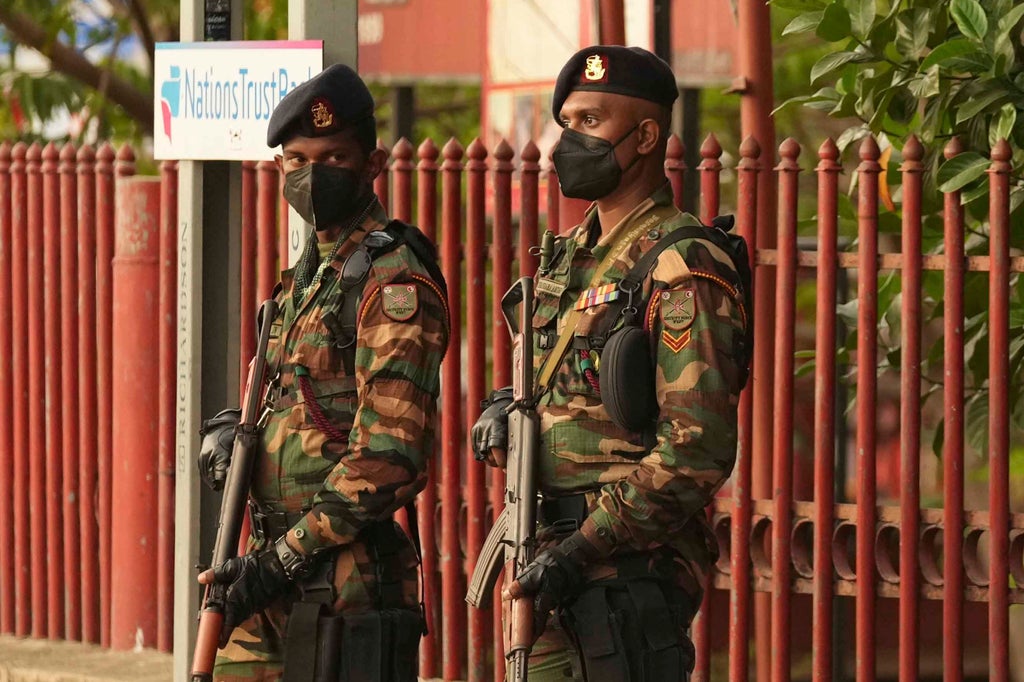
Sri Lanka has reversed a short-lived social media blackout hours after it was announced.
The blackout prompted criticism from president Gotabaya Rajapaksa’s nephew, minister Namal Rajapaksa, who derided it as “completely useless”.
The ban was announced on Sunday morning, a day after the government slapped a curfew and two days after a state of emergency was declared after angry protests broke out across the country.
Authorities blocked social media platforms like Twitter, Instagram, WhatsApp and Facebook “in the interests of the country”, a decision later reversed in the afternoon.
Namal Rajapaksa, a Sri Lankan minister and nephew of president Gotabaya Rajapaksa, tweeted his criticism by using a virtual private network (VPN).
“I will never condone the blocking of social media. The availability of VPN, just like I’m using now, makes such bans completely useless,” he wrote.
“I urge the authorities to think more progressively and reconsider this decision.”
NetBlock, an internet monitoring organisation, had earlier confirmed the blackout in a statement. “Real-time network data show Sri Lanka has imposed a nationwide social media blackout, restricting access to platforms including Twitter, Facebook, WhatsApp, YouTube, and Instagram as emergency is declared amid widespread protests,” it had said.
The organisation had also posted a list of the platforms that were down in the country in a tweet.
Protests have sparked after a spiraling economic crisis put many basic essentials out of reach of ordinary Sri Lankans.
The state of emergency was announced by president Gotabaya Rajapaksa on Friday and, in another follow-up announcement, the Sri Lankan government said there would be a curfew until 6am Monday.
Mr Rajapaksa’s office had issued a statement on Friday branding several protesters “organised extremists” trying to “create anarchy in the country”, while Dilum Amunugama, a minister, sought to accuse several protesters of being “terrorists”.
The president’s statement also said protesters were trying to create an “Arab Spring” in the country.
Several opposition leaders have defied the curfew call and marched on Colombo’s main square, shouting slogans and carrying placards that read “Gota go home” and “stop suppression”.
“You are violating the law. Please think of the people who are suffering. Why are you protecting a government like this?” opposition leader Sajith Premadasa told troops who prevented the lawmakers from walking to the square.
“How long can they rule under emergency? The first instance when the curfew is lifted, people are going to be back on the streets,” said Nalin Bandara, another lawmaker.
News also emerged of police firing tear gas at hundreds of protesting students near the University of Peradeniya, near Kandy city in central Sri Lanka.
“These students have come out in defiance of the curfew and police have fired tear gas to disperse them,” said Lakshman Kiriella, a lawmaker from Kandy. News agency Reuters reached out to police officials, who did not respond to requests for comment.
At least 53 people were arrested in the capital on Friday after hundreds of protesters had attempted to storm Mr Rajapaksa’s private residence, leading to at least 50 injuries.
The president’s office said Mr Rajapaksa took the decision “in the interests of public security, the protection of public order and the maintenance of supplies and essential services.”







